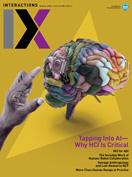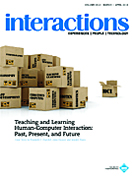Authors:
Renato Verdugo, Scott Minneman
Contributor: Yaakov Lyubetsky
Curators: Renato Verdugo and Scott Minneman
 | AI-generated editorial image in the style of Vogue Ukraine. |
What makes a Vogue image unmistakably Vogue? Flip through any issue, and you'll recognize that elusive quality—an essence that is singular yet defies easy definition. To explore this visual signature, Vogue Ukraine partnered with Google, testing AI's ability to detect patterns that our eyes see but our brains struggle to decode. Gemini was trained on Vogue Ukraine editorials, analyzing the distinctive artistic choices, visual cues, and signature fusion of fashion with cultural context that defines the magazine's identity. The result was a system capable of generating new editorials in Vogue Ukraine's style—an experiment in pushing creative boundaries beyond the existing archive. Perhaps the most revealing insight was the selectivity required to meet Vogue Ukraine's editorial standards. The project ended with a 59:1 rejection ratio. From more than 1,000 images created, each requiring prompts longer than 100 words, just 17 made the final cut. This isn't a failure of AI. Rather, it's a testament to what makes human creativity irreplaceable. Algorithms can recognize patterns, but true artistry demands taste, intuition, and refinement—the discerning eye that elevates the adequate to the exceptional. At Vogue Ukraine, it's the human touch that ultimately decides which images belong in its storied archive.
Yaakov Lyubetsky is a UX designer, AI prototyper, and cofounder of YouTube's GenAI Lab. He helps teams across YouTube and Google explore the new terrain of emerging technologies and make bigger leaps with confidence.
Copyright 2025 held by owners/authors
The Digital Library is published by the Association for Computing Machinery. Copyright © 2025 ACM, Inc.








Post Comment
@Mark Albin (2012 06 30)
This is a very interesting article about social bots, thanks for sharing.
@Aman Anderson (2012 07 18)
This is great
“So what’s the center of a design? In one sense, it is the designer’s nuanced understanding of the problem or opportunity at hand. The focus of design is problem solving, not self-expression.” - Uday Gajendar, Interaction Designer
@Bill Killam (2012 07 31)
This is a long overdue article. And I couldn’t agree with it more. I’m current working on yet another Federal RFP that is asking for us to do work using short cut methods that are likely make it harder to get them quality results, and we can probably propose a cheaper and more data rich approach if they didn’t specify how we had to do the job. Sad.
@Demosthenes Leonard Zelig (2012 08 12)
Great Article, it is funny to notice that such huge corporations do not even bother to do a market research before releasing products on a new market. However, I guess we are still learning from our mistakes.
@[email protected] (2012 10 24)
Hi everyone, In the Technological University of Panama there is also a movement. There is a 2 years MS in IT with a specializtation in HCI. We are also trying to include HCI as part of our main curricula. This year we started a research with a company interested on incorporating usability in their development. We expect to receive a Fulbright Scholar next year in this area…
Regards,
Karla Arosemena
Professor
@John Michael Sheehan (2012 11 06)
There are thousands of blogs that requires comments on them. What is the intention of blog comments? Sent From Blackberry.
@Junia Anacleto (2012 11 07)
A very shallow and naive view of a much more rich and complex context.
I am still waiting for a fair position paper to be presented.
@Rick Norton (2012 11 17)
Excellent article raising significant issues that are largely overlooked. The prospect that the collapse of sustainability for a growth/consumption related societal model is inevitable, is a topic I have often wondered about, given the nature of capitalism as we know it today. Even the “Great Recession” of current times gives me pause to wonder just how long we can keep this economic engine going before we have to face the reality that we are all going to have to learn to “live with less”. (A quantitative assessment, not necessarily qualitative.)
Keep up the good work. Hopefully, you will raise awareness of these topics.
@Noah McNeely (2012 11 27)
Very nice article, that raises meaningful questions. I actually think that the idea of sustainable products and sustainable product development is a bit of a myth. All products consume energy and other resources in one form or another during their production, use, or re-use. The key, ultimately is to balance resource consumption with resource production, but we will always need to be producing new resources. See my blog post on the subject at ( http://productinnovationblog.blogspot.com/2012/11/are-there-sustainable-materials_7159.html )
@[email protected] (2012 11 30)
The quote in the article mis-contextualize James Landay ‘s essay. James actually is actively working to break down those stereotypes, but you can’t do that without understanding what the deep problems are.
James’ blog post on this is at
http://dubfuture.blogspot.com/2011/12/china-will-overtake-us-in.html
@Lee Crane (2012 12 03)
This is a topic that is thought provoking and important. The message explores how humans can escape and survive the world they have jumbled. So many of the theories and ideas are basic. Our future may look a lot like the distant past. And indeed we may be happier for it.
@ 4996484 (2012 12 19)
this is a great article David and Silvia! I’‘m so excited that you guys wrote this up and are showing everyone the complexities in this space. I hope Interactions features more of this kind of research on China. Although I agree w/ @landay’s assessment of China’s creativity problem - but he’s working with a very different population than you guys. I think you research is absolutely on point - creative folks are going to hacker spaces like Xinchejian, they aren’t ending up in institutions like Tsinghua! I explain more here: http://www.88-bar.com/2012/12/where-are-all-the-creative-chinese-people-hanging-out-in-hacker-spaces-apparently/
@Joe (2013 01 04)
I think that if you study the Elliot Wave Theory it can answer your questions.
@Rafeeque (2013 01 06)
good one
@zhai (2013 01 16)
Enjoyed reading this article. I finally got why Harold wants to call it “the Fitts law”. If enough people write it that way I would never have to correct another submission making the embarrassing mistake of ‘Fitt’s law”.
I did not completely get the following remark though:
“The Accot and Zhai paper about the Fitts Law [3] has a clever title that illustrates
the rules on letters, “More than dotting the i’s…”—a bad pun on eyes.”
I came up with the title, but the word “eyes” never came to my mind. We meant that the point-and-click style of UI is like dotting the i’s everywhere—- placing a click on constrained targets as the fundamental action in interaction. Why not using ” Crossing the t’s ” as an alternative action? Indeed, we presented models of a new style of UI, which systematically reveals when crossing is superior to clicking, hence the subtitle of the paper “Foundations for crossing-based interfaces.”
Shumin Zhai
@Mohamadou M. Amar (2013 03 22)
I am a Doctoral student in I/O Psychology with Touro UW and need to access your articles.
@Mohamadou Amar (2013 03 22)
Need access for Doctoral Research
@William Hudson (2013 04 09)
Gilbert overlooks the important issue that the ‘big boys’ largely do not appreciate the need for design all and the problems that real people have with technology. I admit that we’ve had a hard time selling UCD but I am not persuaded by the arguments here to abandon it. Perhaps have a look at my article on a similar subject - User Requirements for the 21st Century - where I take a more pragmatic view of trying to address real users’ needs in the development process. http://bit.ly/agile-ucd
@ 0343665 (2013 04 29)
Fantastic text. I came here by searching for people that quote the Standford study on multitasking. The introduction is fantastic as it builds up an argument that attention has some features that do not change over time.
@Simon Taylor (2013 04 30)
not wanting to do anything so grandiose as building a (technology for) a world parliament, I have in essence been working on the same problems and facing the seven challenges with a project called ‘company.’ [https://gust.com/c/littleelephantltd]
In 2011, working with senior software developers - gratis - although neither the ethical undertaking nor the promise of sweat equity were enough to keep them involved - I established the technical feasibility of ‘company.’
h
In 2012, turning from the ‘voluntary’ ‘principled’ participation model - because the attractions of real paying jobs had lost me my team - I received financial support from the New Zealand government. This part-funded an Intellectual Property Position Review - which government considered a pre-requisite - as commercial due diligence - to investing in an initial build, or beta. The IPPR recommended I do proceed… However, government offers only part-funding and without a team - either technical or commercial - there has been little to no investor interest.
As things stand at present, I have the tools and schematics for a beta build of something which would fit the sort of use imagined here. If you have any interest in helping, please contact me.
Best,
Simon Taylor